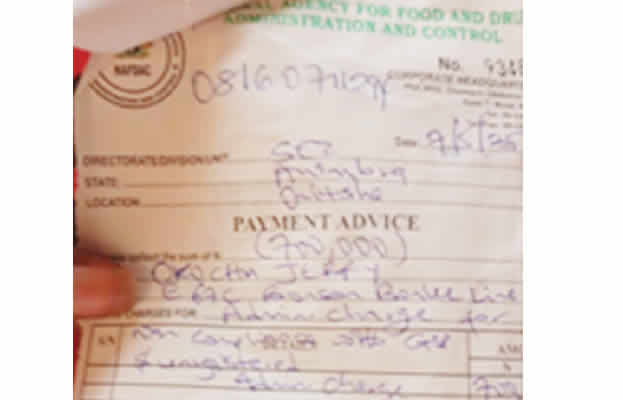The Ogbo-Ogwu drug market in Onitsha, Anambra State, has been a focal point of contention since its closure on February 15, 2025, by the National Agency for Food and Drug Administration and Control (NAFDAC) following a raid that uncovered an estimated N1 trillion worth of counterfeit drugs. While NAFDAC maintains the closure was necessary to protect public health, traders within the market have countered, alleging extortion and undue hardship caused by the agency’s actions. This dispute has escalated into a legal battle, with traders seeking redress through the courts and raising concerns about NAFDAC’s operational procedures.
The core of the traders’ grievances centers on an alleged levy imposed by NAFDAC as a precondition for reopening their shops. Traders allege that each shop owner was required to pay N700,000, with over 1,000 reportedly complying. This “access fee,” as it has been dubbed, is viewed by the traders as a form of extortion, further compounded by the extended market closure, which has severely impacted their livelihoods. They argue that NAFDAC’s actions are not only financially crippling but also tarnish the reputation of legitimate businesses operating within the market. Furthermore, the traders contest NAFDAC’s claims that the seized goods were exclusively counterfeit, asserting that many of the confiscated items were genuine medications sourced from overseas.
Representing the aggrieved traders, the United Nigeria Group has filed a lawsuit against NAFDAC, the Inspector General of Police, the Chief of Army Staff, the Standard Organization of Nigeria (SON), and other relevant parties. The lawsuit, filed at the Federal High Court in Awka, seeks the enforcement of the traders’ fundamental rights, including the immediate reopening of the market and cessation of the alleged extortion. While NAFDAC denies the imposition of levies and claims the market has already been reopened, the traders maintain their stance, supported by affidavits detailing the alleged financial demands and the continued closure of the market. This legal battle underscores the deep distrust between the traders and the regulatory agency and highlights the need for a transparent and impartial investigation into the matter.
Adding fuel to the fire, prominent political figures, including the leader of the Labour Party caucus in the House of Representatives, Afam Ogene, have publicly criticized NAFDAC’s handling of the situation. Ogene questioned the justification of the N700,000 levy and expressed concern about the prolonged market closure. He argues that NAFDAC’s actions are not only unfair to innocent businesses but also potentially compromise the fight against counterfeit drugs. His intervention underscores the growing political dimension of the dispute and puts further pressure on NAFDAC to address the traders’ concerns.
Human rights organizations have also joined the chorus of voices condemning NAFDAC’s actions. The Human Rights Liberty Access and Peace Defenders’ Foundation (HURIDE) and the Campaign for Democracy, South East Zone, have described NAFDAC’s conduct as “extortionist” and “ethnically motivated.” They argue that while combating counterfeit drugs is crucial, NAFDAC’s approach has been heavy-handed and has unjustly penalized legitimate businesses. Their call for an independent inquiry into NAFDAC’s financial dealings over the past two decades further amplifies the need for greater transparency and accountability within the agency.
The Ogbo-Ogwu market saga reflects a broader challenge in regulating complex markets. Balancing the imperative of protecting public health with the rights and livelihoods of traders requires a nuanced approach. The allegations of extortion, coupled with the prolonged market closure, raise serious concerns about due process and fairness. A thorough and impartial investigation is needed to uncover the truth and restore trust in the regulatory process. Furthermore, this situation underscores the need for ongoing dialogue between regulators and stakeholders to create a more effective and equitable framework for combating the trade in counterfeit drugs. A sustainable solution will require addressing the root causes of counterfeiting while simultaneously supporting legitimate businesses and protecting the livelihoods of those dependent on the market.














